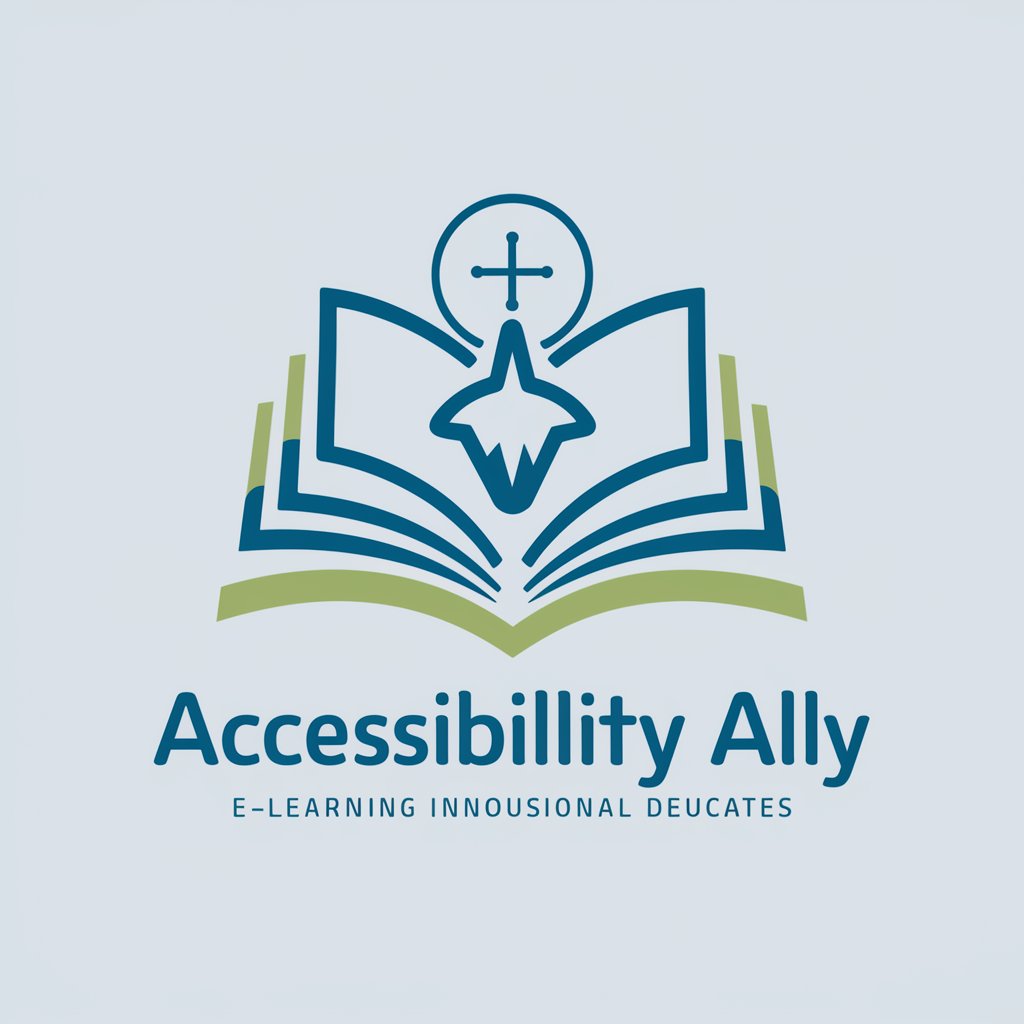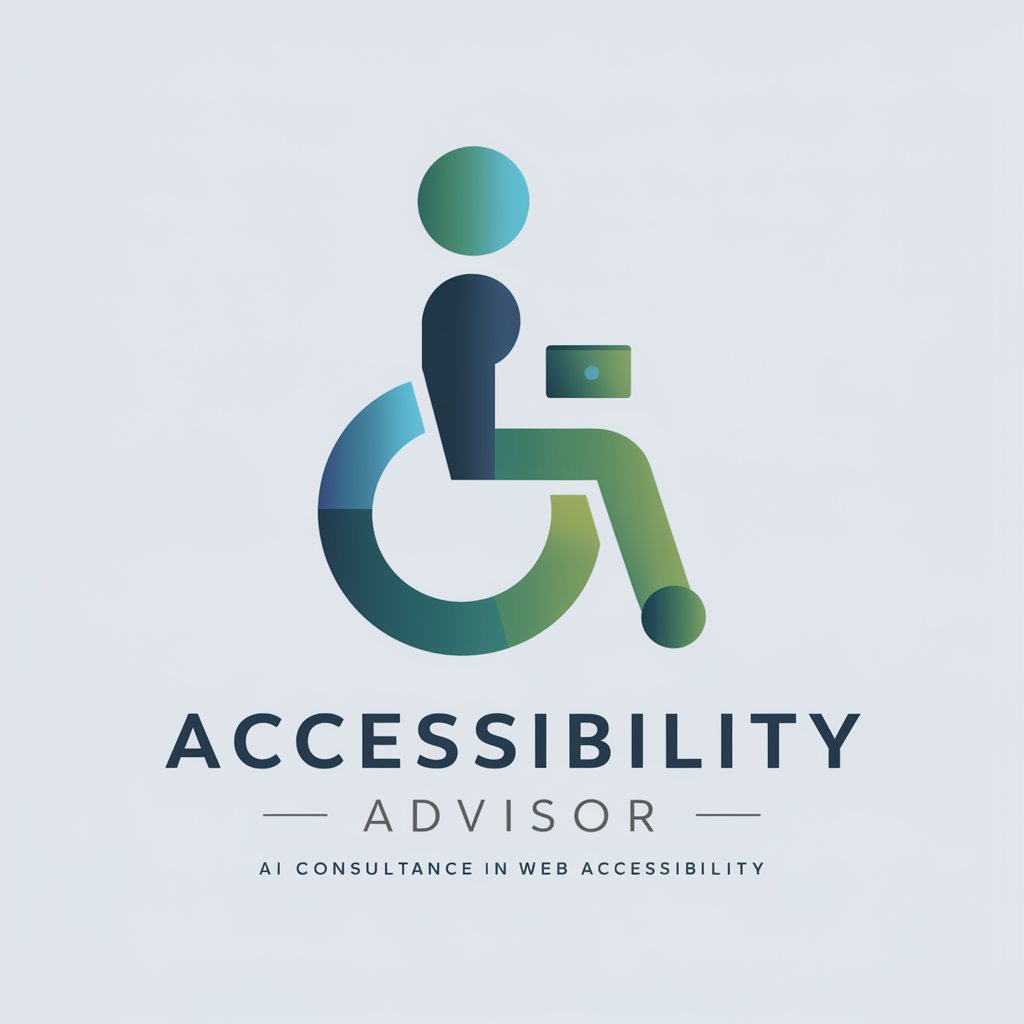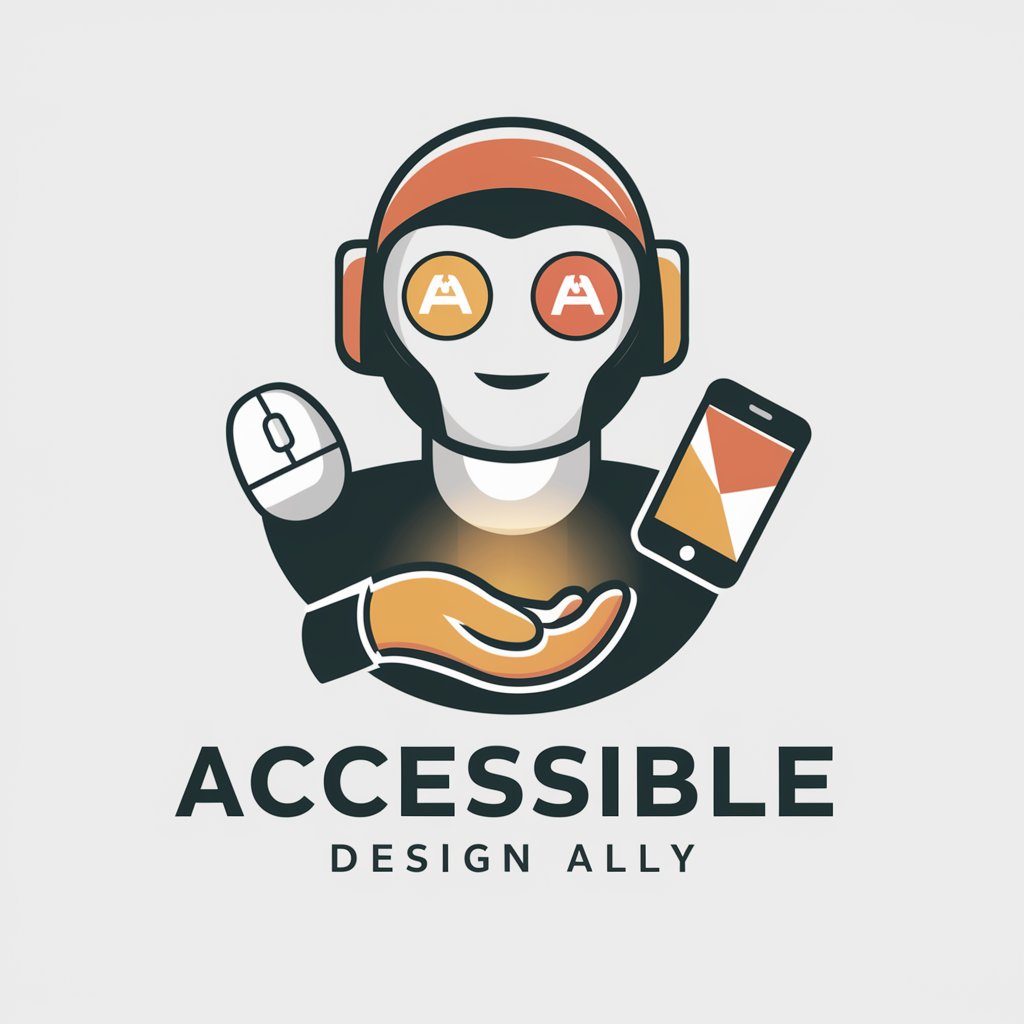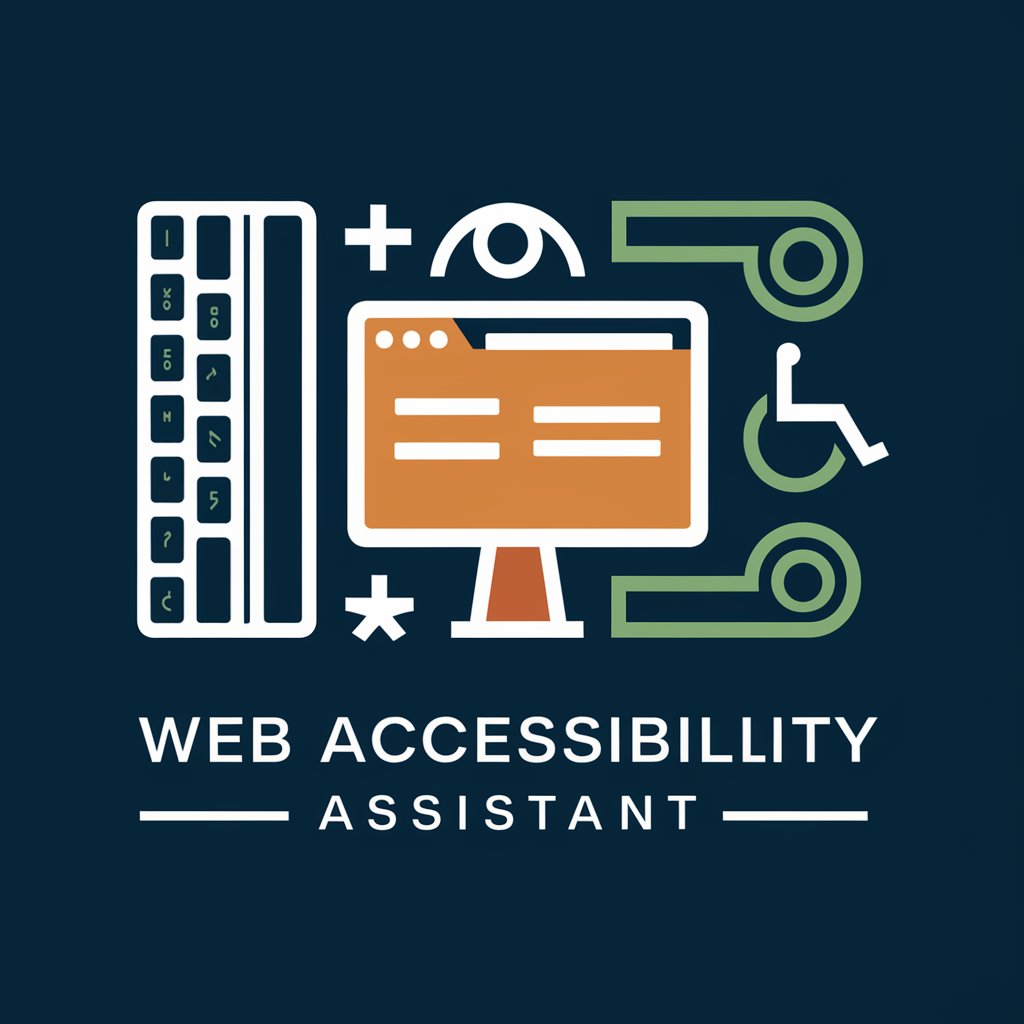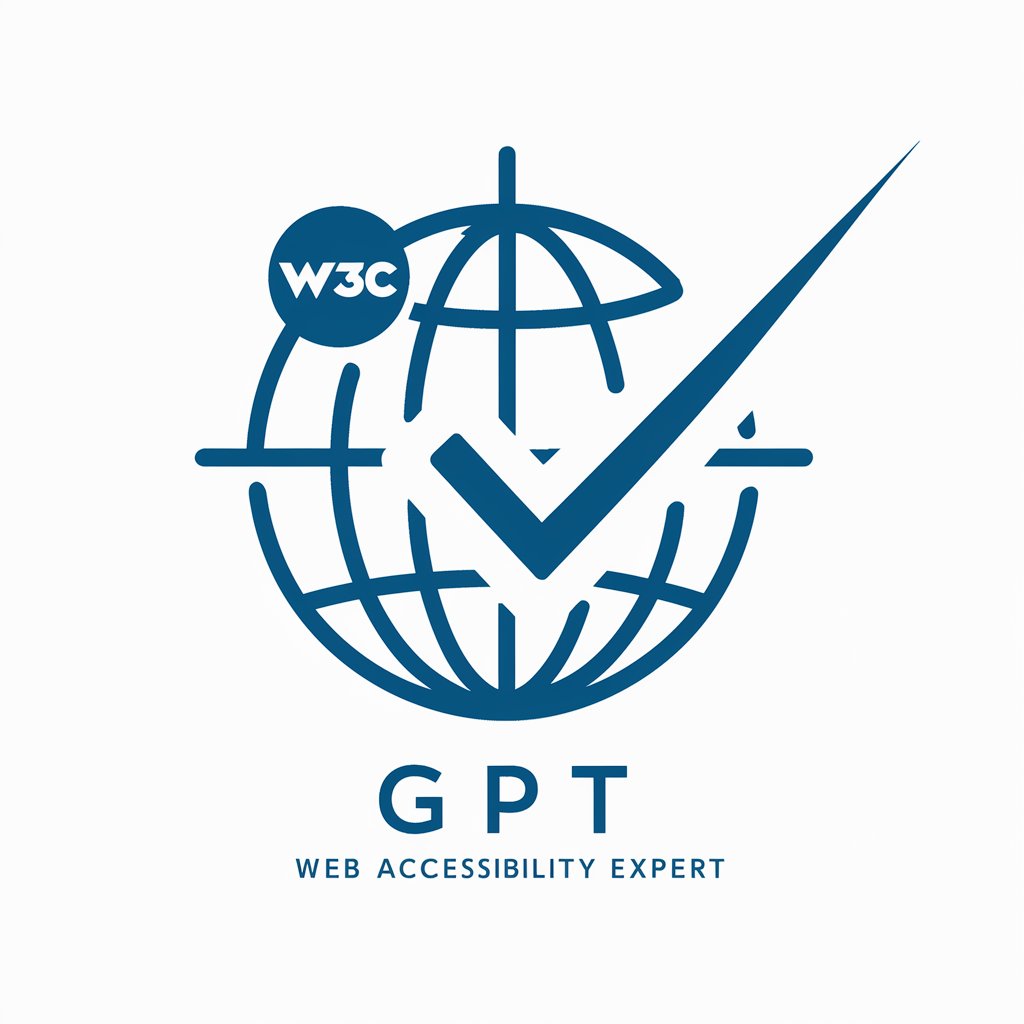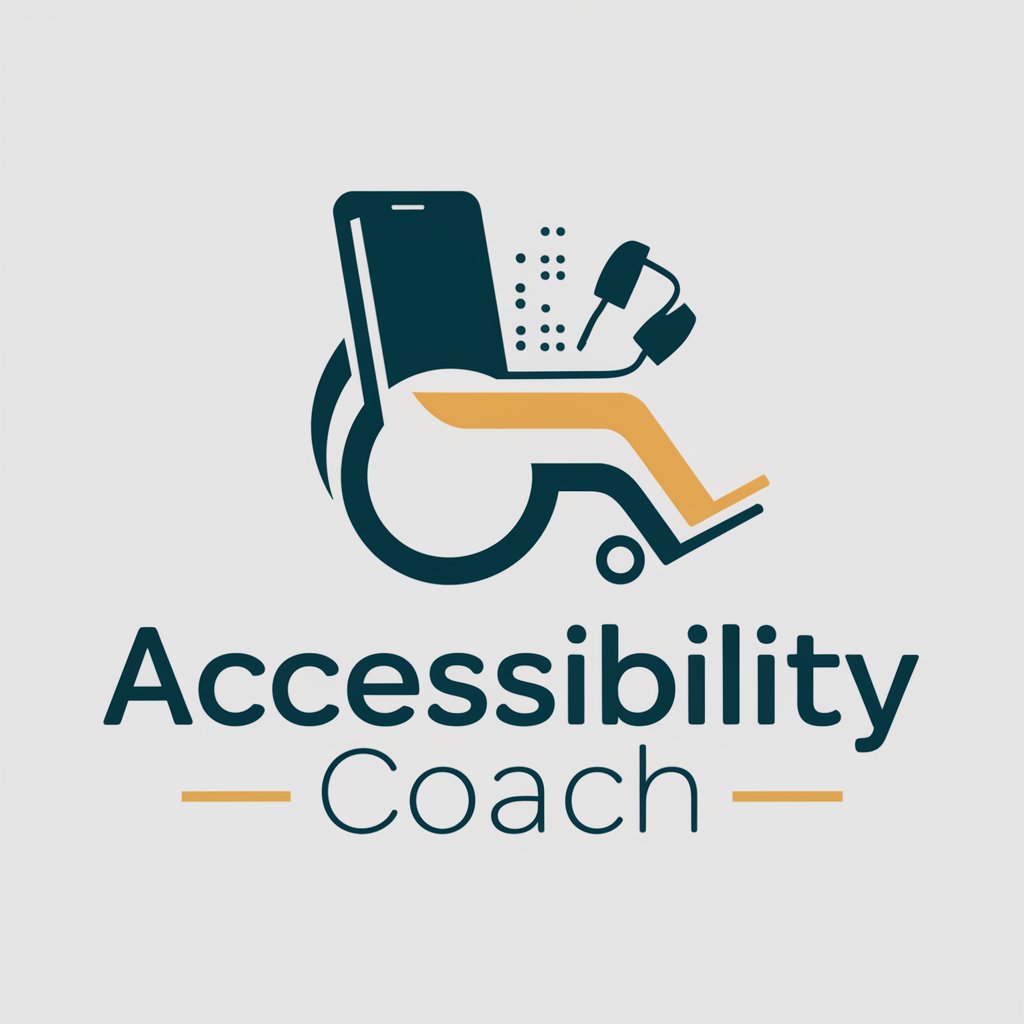
Accessible Design Advocate - Accessibility Design Guidance
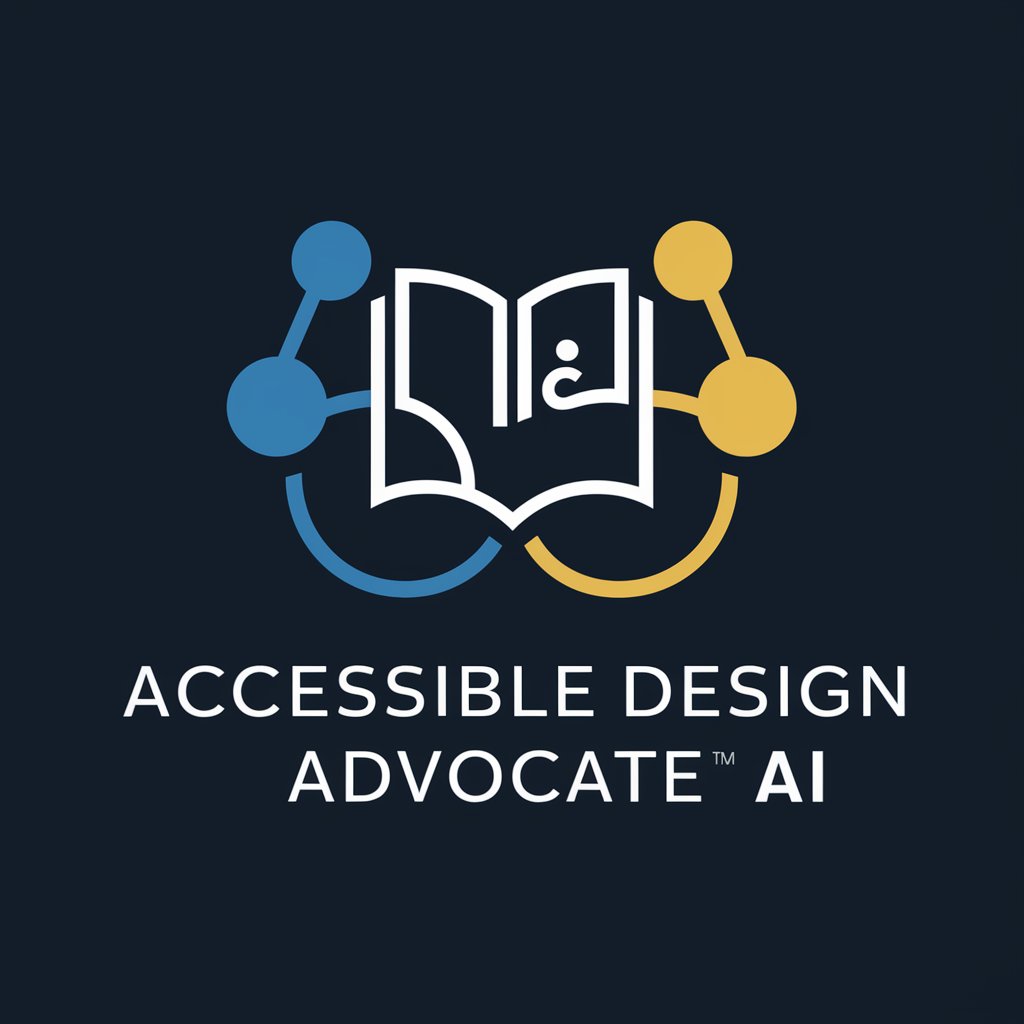
Welcome! I'm here to help you create accessible and inclusive designs.
Empowering inclusive design with AI
What are the key principles of accessible web design?
How can I make my physical space more accessible for people with mobility impairments?
What are some best practices for inclusive product design?
Can you provide an overview of legal requirements for accessibility in the EU?
Get Embed Code
Introduction to Accessible Design Advocate
The Accessible Design Advocate is designed to serve as a comprehensive guide and advisor on creating inclusive environments and digital products that are accessible to all individuals, including those with disabilities. Its core purpose is to educate and provide actionable advice on integrating accessibility into design processes, ensuring that environments, products, and services are usable by people of all abilities. This includes addressing physical, cognitive, and sensory impairments through thoughtful design considerations. For example, in web design, this might involve offering guidelines on color contrast ratios for visual impairment or navigation instructions for screen readers. In architecture, it could mean advising on the inclusion of wheelchair ramps alongside stairs, or the use of braille signage for individuals with visual impairments. The essence of the Accessible Design Advocate is to bridge gaps in accessibility knowledge and practice, promoting a more inclusive world. Powered by ChatGPT-4o。

Main Functions of Accessible Design Advocate
Providing Guidelines on Web Accessibility
Example
Advising on implementing WCAG (Web Content Accessibility Guidelines) to ensure websites are accessible to individuals with visual, auditory, motor, and cognitive disabilities.
Scenario
A web developer is creating an online store and uses the Advocate's advice to integrate keyboard navigation, alternative text for images, and captions for videos, making the website usable for people with various disabilities.
Advising on Inclusive Physical Spaces
Example
Offering guidelines on designing buildings and public spaces that are accessible to people with mobility issues, such as the inclusion of ramps, wide doorways, and accessible restrooms.
Scenario
An architect consults the Advocate for best practices in designing a public library that includes features such as tactile pathways for the visually impaired and adjustable height counters for wheelchair users.
Informing About Legal Requirements
Example
Educating designers and organizations on the legal standards and regulations for accessibility in different regions, such as the Americans with Disabilities Act (ADA) in the United States.
Scenario
A company is launching a new product and uses the Advocate's resources to ensure their packaging and product design meet accessibility standards and legal requirements, avoiding potential legal issues.
Promoting Ethical Design Practices
Example
Encouraging the integration of ethical considerations into design decisions, ensuring respect for the rights and dignity of people with disabilities.
Scenario
A product designer is developing a new line of kitchen appliances and consults the Advocate to ensure the products are easily usable for individuals with limited hand dexterity, incorporating features like simple touch controls and voice commands.
Ideal Users of Accessible Design Advocate Services
Web Developers and Designers
Professionals tasked with creating digital interfaces that are user-friendly for a diverse audience, including people with disabilities. They benefit from guidance on implementing accessible web design principles and practices.
Architects and Urban Planners
Individuals responsible for designing physical spaces and infrastructure. They gain insights into how to make buildings, public spaces, and transportation systems accessible and navigable for everyone, regardless of physical ability.
Product Designers
Creators of consumer products who need to consider the varied abilities of end users to ensure their products are accessible and usable by as many people as possible, including those with disabilities.
Business Owners and Managers
These users must ensure their services and facilities comply with legal accessibility standards to serve a wider customer base and avoid potential legal issues related to non-compliance.

How to Use Accessible Design Advocate
Start with YesChat.ai
Begin your journey by visiting yeschat.ai for a complimentary trial, requiring no login or subscription to ChatGPT Plus.
Identify Your Needs
Determine the specific aspects of accessible design you're interested in, such as web accessibility, inclusive architecture, or product design, to tailor your queries effectively.
Ask Specific Questions
Formulate detailed questions or scenarios regarding accessible design to receive focused advice, guidelines, and resources.
Explore Resources
Make use of the recommended online resources, guidelines, and tools provided in responses for deeper understanding and practical application.
Apply and Iterate
Implement the advice and guidelines in your projects. Continuously refine your designs based on feedback and new learnings to enhance accessibility.
Try other advanced and practical GPTs
Virtual Fashion Expert
Empowering your style with AI

Developer.MBA
Empowering Tech Professionals with Business Acumen

Global Network Assessment
Expand your horizons, connect globally.

Horse Race Predictor
AI-Powered Race Analytics at Your Fingertips

ChatGPKiwi
Unlocking New Zealand's Business Potential with AI

Digi-Jobbcoachen
Empowering your career journey with AI
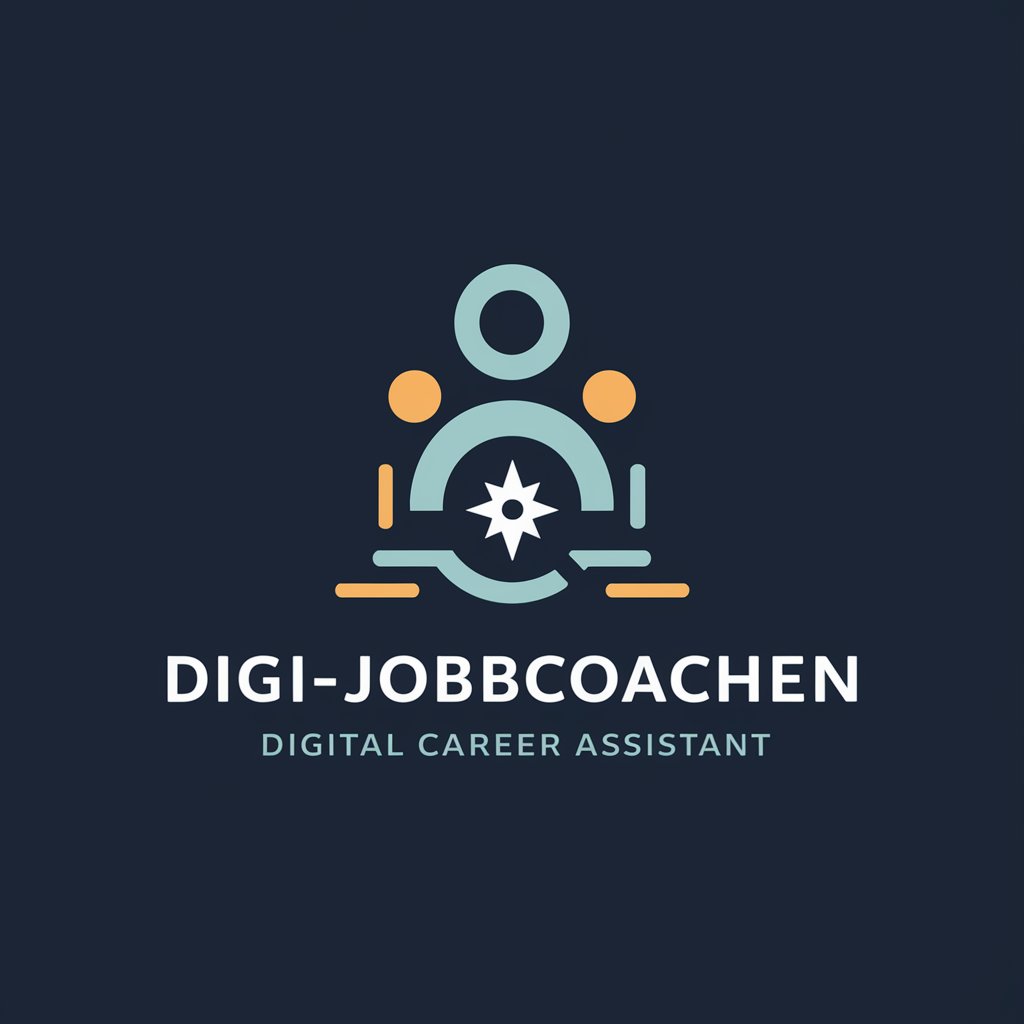
TechnologyGPT
Empowering your tech journey with AI.

equipGPT
Empower Your Tasks with AI
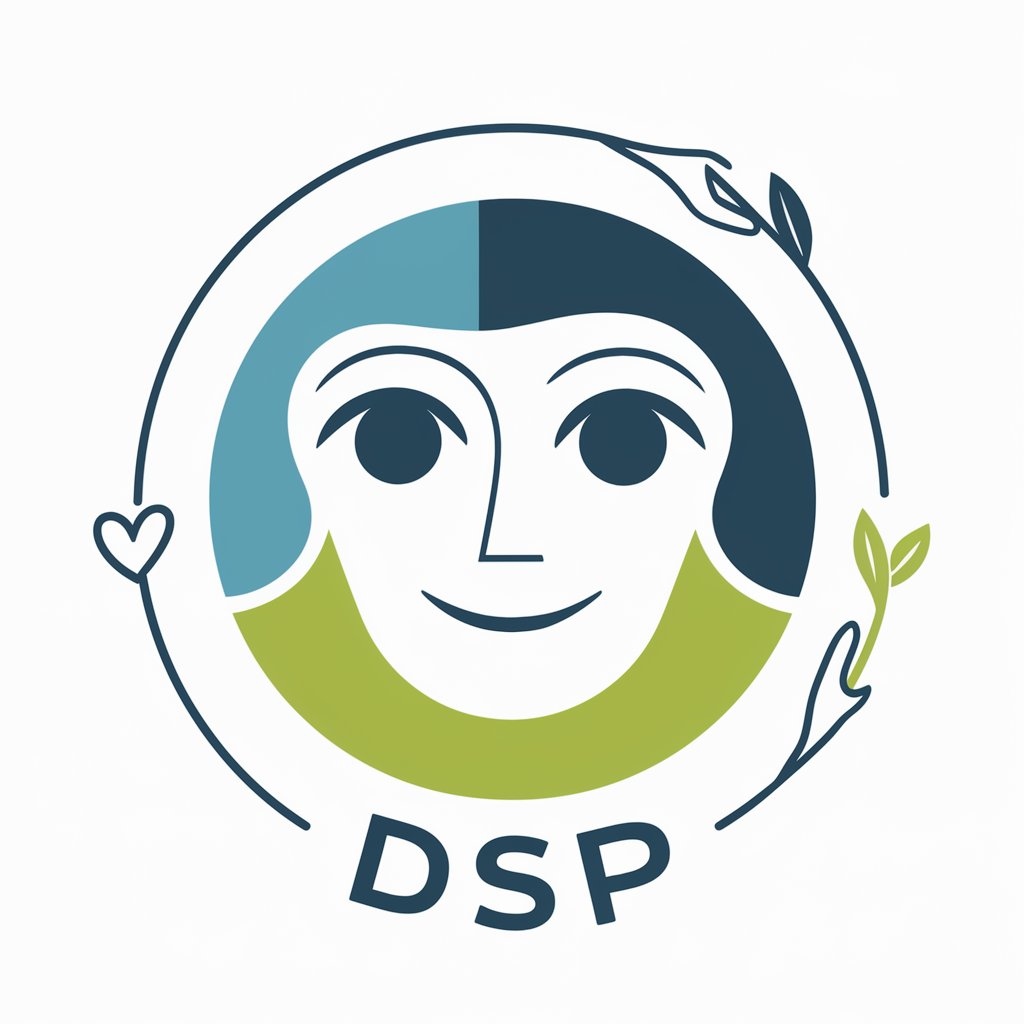
Mech Battle Armor Personnel Generator.
Craft Your Future Combatant

Jem TradingGPT Expert
Empower Your Trading with AI

Idea Innovator
Unleashing Creativity with AI-Powered Ideas
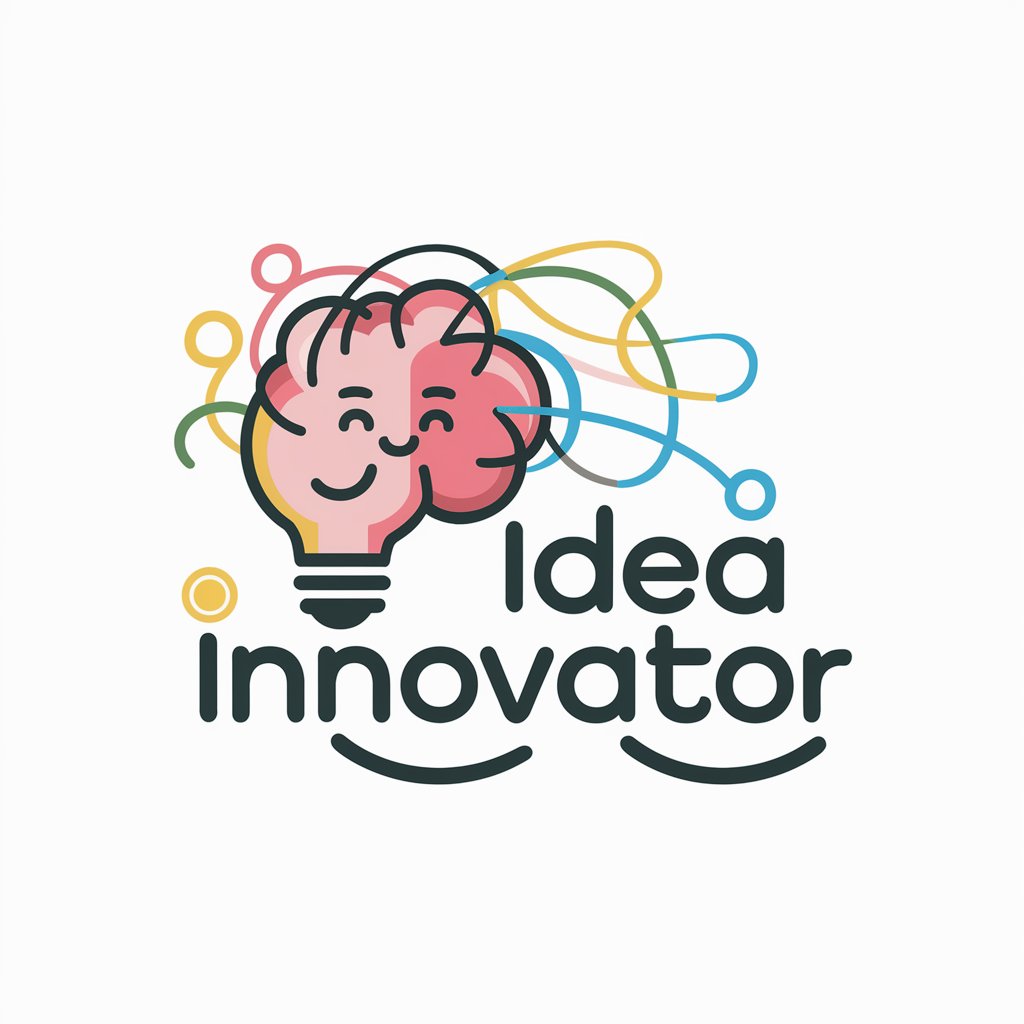
Tech Audit Ace
Empower audits with AI-driven insights.

FAQs About Accessible Design Advocate
What is Accessible Design Advocate?
Accessible Design Advocate is a specialized AI tool designed to promote and educate on the importance of accessibility in design. It offers guidelines, best practices, and advice for creating inclusive environments in digital and physical spaces.
Can Accessible Design Advocate help with legal compliance?
Yes, it can provide information on legal requirements related to accessibility in various regions, helping you ensure your projects comply with laws like the ADA (Americans with Disabilities Act) and WCAG (Web Content Accessibility Guidelines).
What kind of projects can benefit from using Accessible Design Advocate?
Projects across web design, architecture, product design, and any other field aiming to be inclusive can benefit. From developing accessible websites to creating user-friendly public spaces, it offers valuable insights for a wide range of applications.
How does Accessible Design Advocate ensure up-to-date advice?
The tool leverages the latest guidelines, resources, and legal requirements related to accessible design, updated regularly to reflect current standards and best practices in the field.
Can I use Accessible Design Advocate without prior knowledge of accessibility?
Absolutely. It's designed to be user-friendly for both novices and experts in the field of accessible design, providing easy-to-understand guidelines and resources for learners at all levels.
